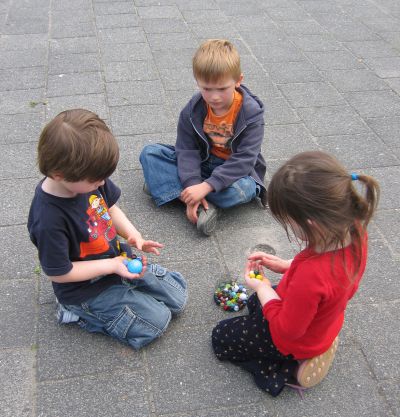School age children are able to concentrate for a longer period of time in set tasks, enabling them to think, understand and find reasons to simple problems. They have a greater understanding of a variety of concepts and memory also improves dramatically. A school age child will also start to have their own thought process and curiosity begins to emerge. They begin to discover answers to some difficult questions such as “where do we come from” and “how we were born”? Overall at this point, a school age child absorbs information with ease and will attain a wide range of knowledge, when being exposed to it.
Cognitive Development Milestones from 6 years+
- can count ten to twenty objects (this increases as more numbers are learnt)
- identifies coins and notes
- understands how money is used
- knows morning, afternoon, evening etc
- knows object properties (heavy, light etc.)
- may find it difficult to make choices
- has organized, continuous memory
- begins to read simple words
- able to write full name (first name, middle name and surname)
- can count backwards from twenty
- knows left and right competently
- identifies days of the week, months in a year, in chronological order
- repeats three digits backwards
- understands and begins to tell the time
- able to read simple stories with repetitive words
- follows and understands complex instructions (verbal and visual)
- generalizes instances of failure with statements (“I never do anything right”)
- able to write simple words (names of objects, friends names etc.)
Cognitive development improves over this period of time. Activities such as writing words and reading will begin and should be encouraged in order to extend on their cognitive development. Like mentioned earlier, curiosity also emerges so it’s important to extend on a child’s interests, which opens up a whole new world of discovery for them.







 Toddlers have a greater understanding of the world around them by this stage. Their cognitive development (also known as intellectual development and thinking skills) continues
Toddlers have a greater understanding of the world around them by this stage. Their cognitive development (also known as intellectual development and thinking skills) continues Infants begin to develop trust when parents begin to fulfil their needs. Such as changing an infant's nappy when needed, feeding on request and holding
Infants begin to develop trust when parents begin to fulfil their needs. Such as changing an infant's nappy when needed, feeding on request and holding Beginning at birth the construction of thought processes, such as memory, problem solving, exploration of objects etc, is an important part of an infant’s cognitive
Beginning at birth the construction of thought processes, such as memory, problem solving, exploration of objects etc, is an important part of an infant’s cognitive Toddlers want to do more on their own and do not like it when you begin to establish limits on their behaviour. Tantrums can become
Toddlers want to do more on their own and do not like it when you begin to establish limits on their behaviour. Tantrums can become Your preschooler is now able to focus their attention more accurately and is less influenced by distractions. The intensity of questions increase as your child
Your preschooler is now able to focus their attention more accurately and is less influenced by distractions. The intensity of questions increase as your child John Dewey is often seen as the proponent of learning by doing – rather than learning by passively receiving. He believed that each child was active,
John Dewey is often seen as the proponent of learning by doing – rather than learning by passively receiving. He believed that each child was active, Toddler advance and gains new skills in Gross Motor Development milestones achieved throughout earlier years. Co-ordination and challenges that could not be performed before such
Toddler advance and gains new skills in Gross Motor Development milestones achieved throughout earlier years. Co-ordination and challenges that could not be performed before such Erik Erikson developed a psychosocial theory to understand how we each develop our identities through eight stages of psychosocial development from infancy to adulthood. The
Erik Erikson developed a psychosocial theory to understand how we each develop our identities through eight stages of psychosocial development from infancy to adulthood. The At this point preschoolers begin to interact effectively with others. Play becomes more innovative and organized and “boyfriend” or “girlfriend” begins to emerge. Preschoolers have
At this point preschoolers begin to interact effectively with others. Play becomes more innovative and organized and “boyfriend” or “girlfriend” begins to emerge. Preschoolers have From now, babies begin to identify and respond to their own feelings, understanding other's feelings & needs and interact positively with others. A baby's social and
From now, babies begin to identify and respond to their own feelings, understanding other's feelings & needs and interact positively with others. A baby's social and


